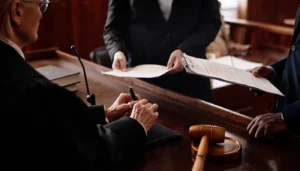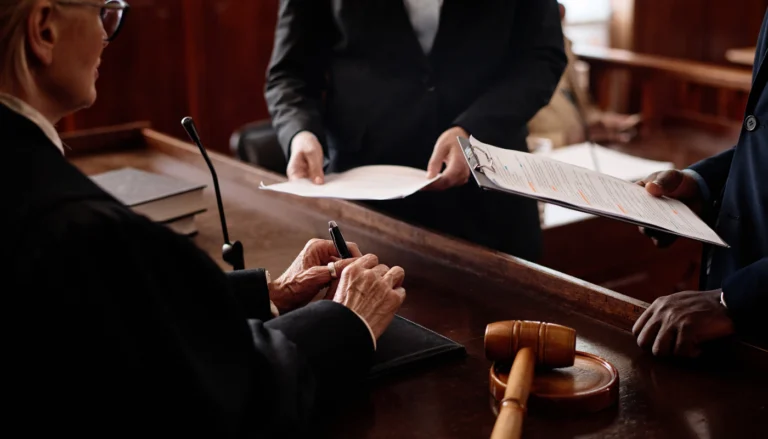Injured workers may find themselves in a tough situation. While trying to heal, they must also navigate legal options regarding compensation. Workers’ compensation in Florida is the most common type of compensation available to those who are injured on the job. Personal injury claims may be appropriate in certain situations. Understanding the differences between these two legal paths can help you decide which path is right for your situation.
Can I file both a workers’ compensation claim and a personal injury case?
Florida law only allows workers compensation to cover employees who are injured on the job. Employees cannot generally sue their employers in tort for damages. This rule does not apply in the following cases:
- When someone other than the employer is at fault for an injury, this is called third-party liability.
- When the employer is guilty of gross negligence or deliberate misconduct, there’s a risk to the workplace.
Trade-offs in workers’ compensation are:
- Medical costs and lost wage coverage can be obtained without proof of fault.
- Most lawsuits filed against employers who provide workers’ compensation will be protected.
Balance was designed to protect employers from excessive liability, and provide fast relief for injured employees.
Florida’s “Statutory Employment Doctrine
Florida’s workers compensation law is heavily influenced by the statutory employer doctrine. Under certain circumstances, it can shield contractors and property owners from tort liability. Contractors may use the following defenses to protect themselves from employer liability.
- The contract and property owner
- Control is also known as management.
- Subcontracting is when you subcontract work to someone else.
- The injured worker worked as an employee for a contractor, performing tasks that were part of his normal business.
The contractor will be considered a statutory employee if these conditions are met. The contractor becomes immune to tort claims. The injured employee can still receive workers’ compensation benefits.
Florida Workers’ Compensation Exclusions
Florida law excludes certain injuries from coverage by workers’ compensation. Florida law excludes some injuries from workers’ compensation coverage.
1. Self-Inflicted Injury
Employees who deliberately harm themselves do not qualify for benefits.
2. Intoxication and drug use: injuries caused by intoxication, drugs or both
If the impairment of an employee is a major cause of injury, compensation may be denied. As an example:
- In MDS Labs v. WCAB Munchinski, compensation was denied where intoxication directly contributed to the injury.
- Compensation will be paid if the injury was directly caused by alcohol consumption.
3. Violations Of Positive Work Orders
Employees who violate safety procedures or rules set forth by their employers may not receive benefits. For example, you can:
- Employees who are injured because their employer has prohibited them from repairing equipment and have not been allowed to do so may not be eligible for benefits.
4. Personal Animosity is a cause of injury
An employee injured in a dispute that is unrelated to their work duties may not be eligible for workers’ compensation. Florida law excludes injury caused by third-parties motivated by personal animosity, and not related to employment.
When can you claim personal injury?
You may be able, in Florida, to file a personal injury lawsuit instead or in addition to a workers compensation claim. They include:
1. Third-Party Negligence
You can claim personal injury if your work injury was caused by someone else (not your employer). You can, for example:
- The driver of a truck that delivers goods who is injured in an accident caused by another driver may sue him for personal injuries.
2. Employer Misconduct
A personal injury claim can be filed if the negligence of an employer is not ordinary. Examples include intentional harm or gross negligence. The Florida Supreme Court ruled in Turner v. PCR, Inc. that employees can sue their employers for intentional misconduct resulting in injury.
3. Workers Compensation Insurance
In Florida, employers are required to have workers’ compensation insurance. In Florida, employers are required to carry workers’ compensation insurance.
What is the difference in workers compensation and personal injuries?
Fault
- Worker’s compensation: Benefits are paid without regard to the cause.
- Personal Injury: To prove negligence or malicious intent, the defendant must prove personal injury.
Compensation
- In some cases, workers’ compensation will cover medical expenses, lost wages and vocational rehabilitation. The compensation does not cover pain and suffering.
- Personal injury: compensation for medical expenses, lost wages, and pain and discomfort.
Process
- Workers’ compensation is a relatively quick and easy process, but the coverage is limited.
- Personal injury can be a serious matter that may require litigation, but could result in a higher compensation.
What to do in the event of a Florida workplace accident
- Report the Injury Report the injury immediately. Florida law requires that employers report injuries to the state within 30 days.
- Speak to a DoctorSelect a physician who is approved by the workers’ compensation insurance of your employer.
- Consult a lawyer
If you think that the injury was caused either by a third-party’s negligence or your own breach, consult an attorney. You could be entitled to file a claim for personal injury. - You can claim your right
Workers’ compensation claims in Florida must generally be filed within a two-year period. In Florida, personal injury lawsuits are limited to a four-year period.
Final Thoughts
The circumstances of your injury will determine whether you choose to file a claim for workers’ compensation or a lawsuit for personal injury. Workers’ compensation in Florida is the only option for workplace injuries. There are exceptions, such as when there is a third party involved or if the employer was negligent.
Consult an attorney with experience to protect your rights and receive the compensation that you deserve. Understanding your options can help you navigate through the complicated process of a personal injury claim or workers’ compensation claim.
This article was written by a Bonardi & Uzdavinis professional. https://bufirm.com/ a boutique full-service law firm that provides its clients with an extensive range of legal representation. Real estate, probate and personal injury are our primary areas of expertise. Contact us for a free case evaluation if you need a personal injury or real estate attorney in Tampa Bay.











